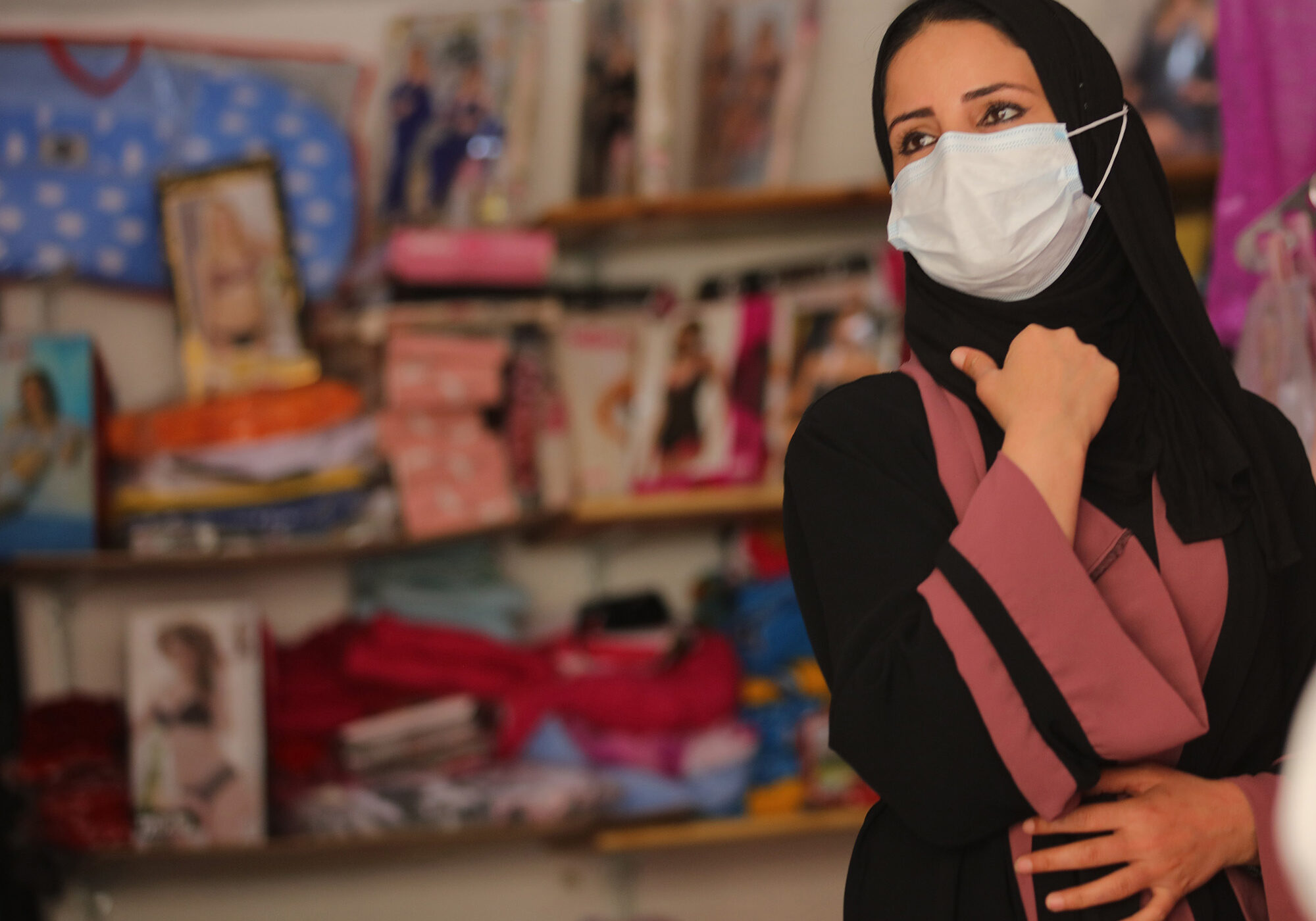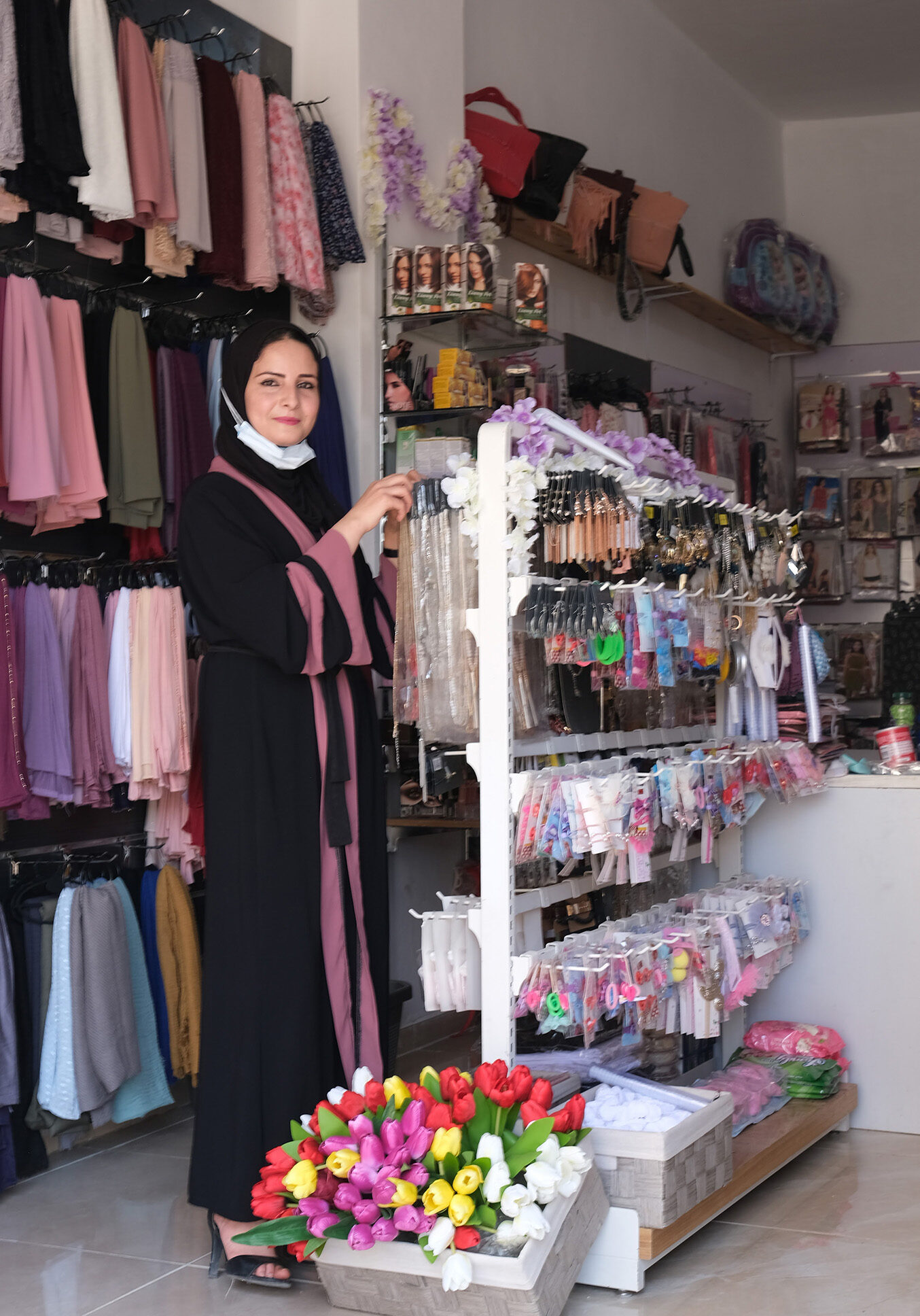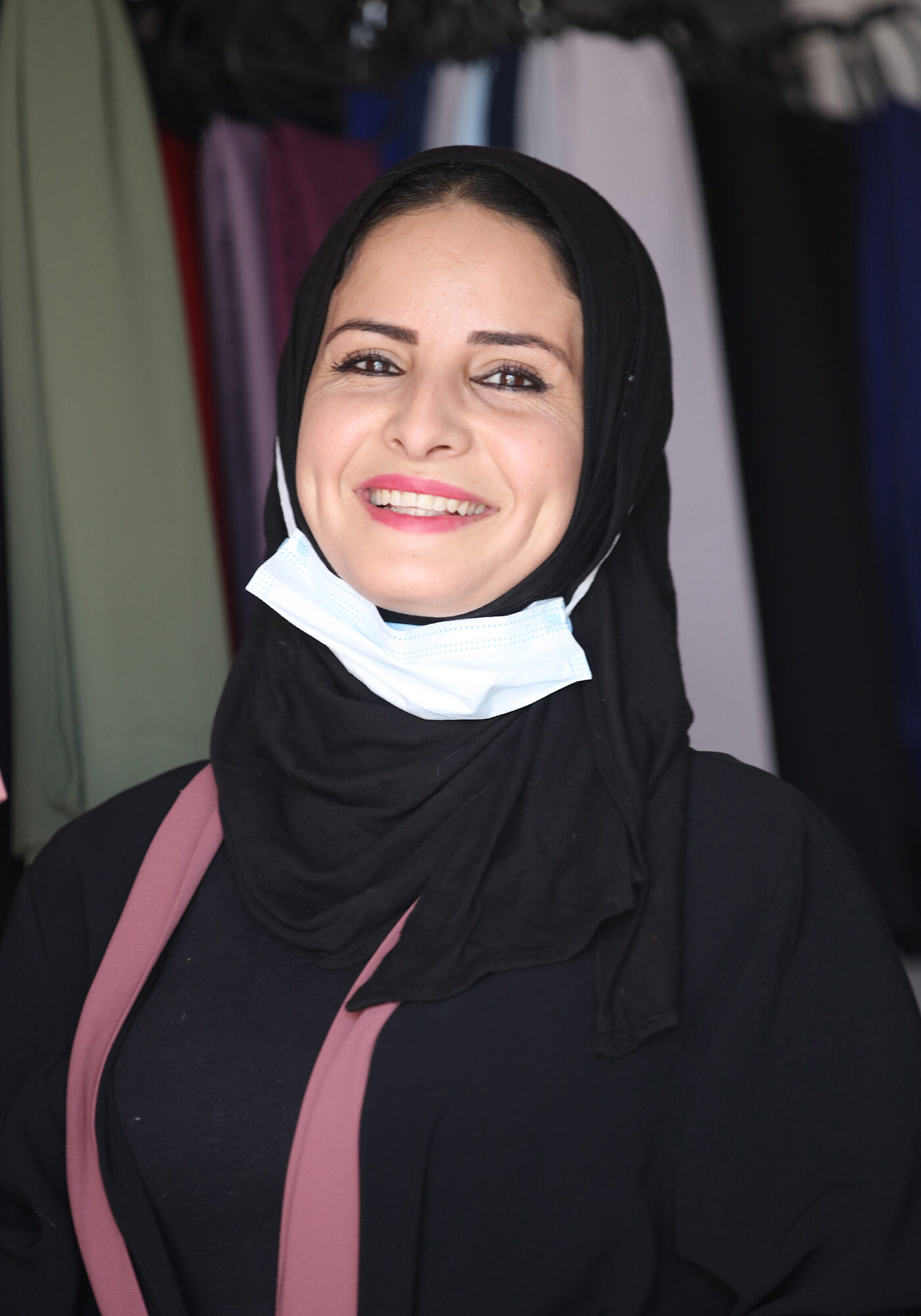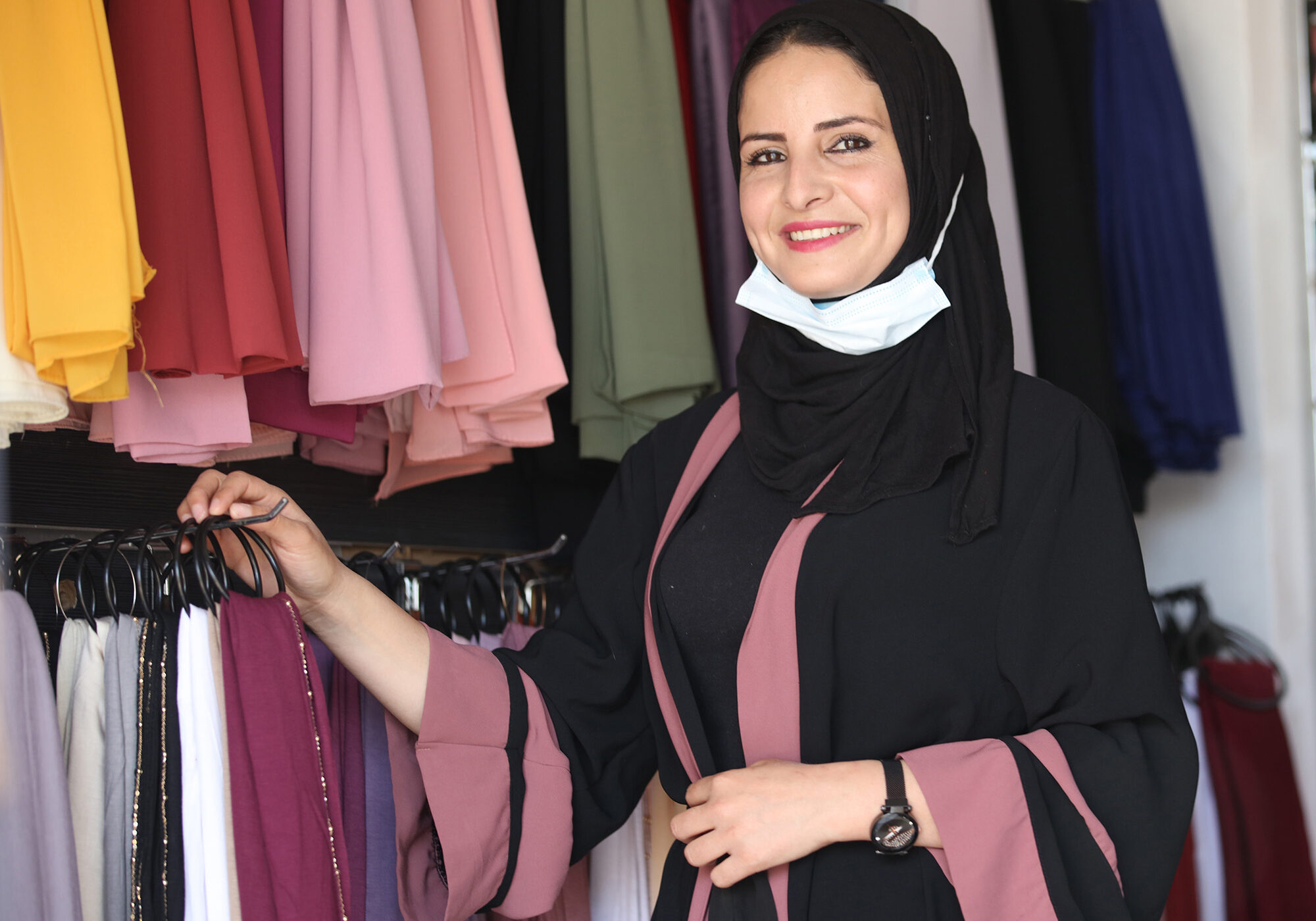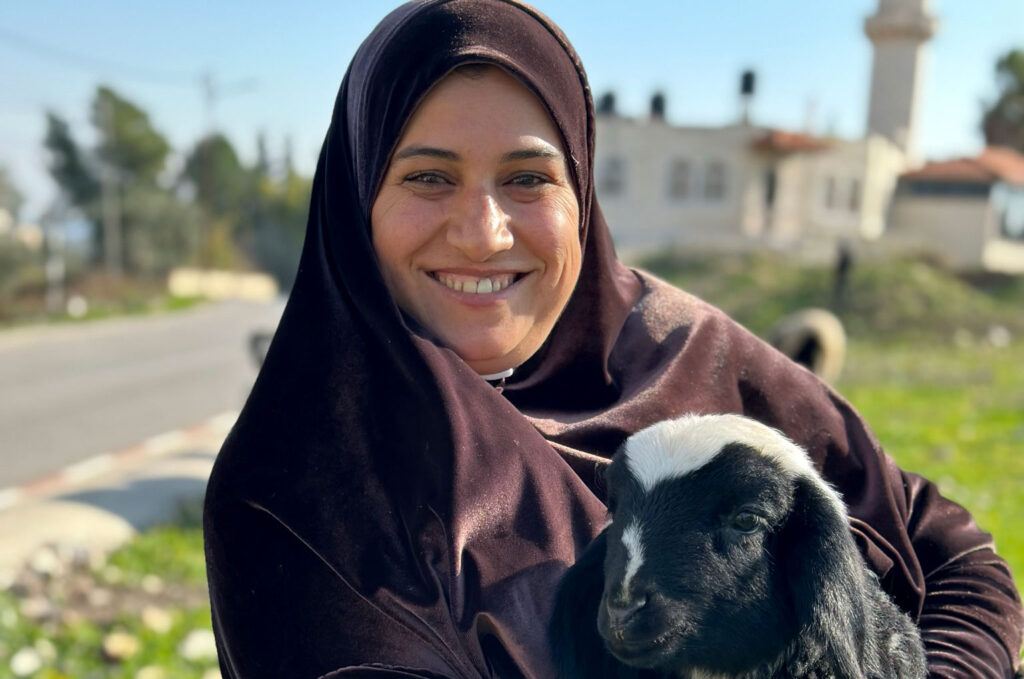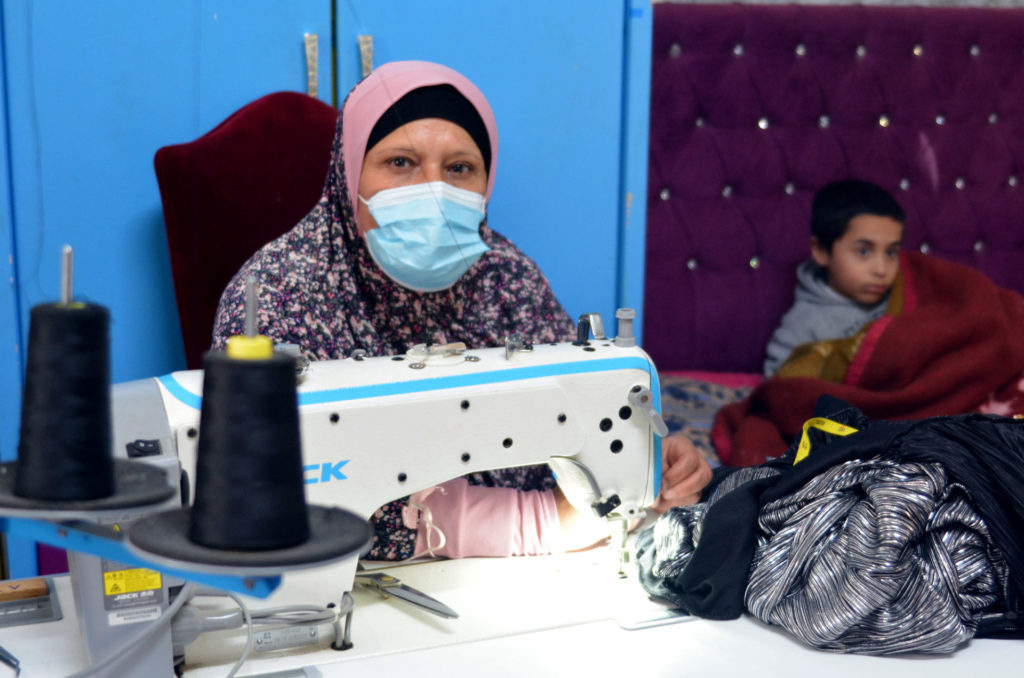COMMUNITY
From Door-to-door Salesperson to Social Media Marketer, Nihaya Takes Her Clothing Sales Online in Palestine
Jun, 2021
Anera’s economic empowerment program opens opportunities for women breadwinners.
Nihaya is a 32-year-old who lives in the village of Al Mughier — located in the West Bank, Palestine. After getting divorced a few years ago, Nihaya thought her life was over. With two young kids to support, life was tough for a single woman without an income in Palestine.
Nihaya is a proud woman. She was determined not to accept assistance.
“I hate begging for money and food,” she says. “I always had confidence that my circumstances would change, even if I didn’t know how or when it would happen.”
She did have the beginnings of a plan, however. To bring in some money, she would buy clothes at retail from the city and resell them in her village area.
Al Mughier is a small, remote village in a hilly area on the northern edge of the Ramallah Governorate. The ancient village is sandwiched between Nablus to the north and the city of Ramallah to the south. Both cities are over a 20 km mile drive from Al Mughier. A long distance for Nihaya to drive, especially for someone who does not own a car or have any spare income.
First she needed to get a driver’s license, even though the paperwork would cost money she didn’t have.
“My budget was tight but I managed to set aside enough to get a driver’s license,” she says.
“After that expense, I had almost nothing left. No money, with two kids – life can’t get darker or gloomier,” she says.
To start buying clothes from Ramallah and Nablus, she pooled the little savings she had left and took advantage of her new driving skills. “I borrowed a car from a friend of mine to go to Ramallah to get the clothing, blankets, and accessories and bring them back to the village,” she says.
She felt good after she successfully accomplished her clothing runs. “That‘s when I knew the money I had spent to learn to drive hadn’t been a waste.”
She began to sell the clothes.
“I went door to door with my two little kids, to see if people were interested in buying my stuff. Sometimes they were, and sometimes not. Then in the evenings, I would spend my time helping the kids with their homework.”
She struggled to find the time to sell enough clothing to live on while also raising her kids on her own. The door-to-door sales provided some income but not enough to get by. “It was a hard time but I managed,” Nihaya says. “It was okay as long as I was not asking anyone for cash or food assistance. I never want to compromise my dignity.”
When she learned about Anera’s Women Can initiative, she saw an opportunity to expand her small door-to-door business and increase her revenue. Nihaya ultimately wanted to make enough to give herself and her children some peace of mind. In her mind, it was time to settle down in a store of her own rather than travel constantly with her children from one village to another.
“It’s as if my deep prayers and perseverance paid off at once. I received a grant to start a small clothing store. With the money, I was able to fill my store with children’s and women's outerwear, lingerie, blankets and winter clothes.”
Nihaya has been developing some savvy marketing strategies as well. “I use digital platforms to help me with this,” she says.
“I usually post an outfit for a day or so before I decide whether to bring it to my store or not. I look at the comments sections and feedback – if at least a third of responses are positive, I go buy it the next day."
She just opened the store a month ago. “I’ve made $1,000 [3,500 NIS] so far,” she says.
“Before the COVID lockdown, I was able to fill the stock up with what I needed. Especially before Ramadan and Eid.”
Nihaya continues to experiment with ways to drive sales – and help others. Recently, she started a sale on winter garments so that other women who were in her position can take advantage of the reduced prices to stock up and resell clothes next winter.
“I am so thankful and grateful for having the privilege to be part of this project,” she says.
“If you are blessed with a sound mind and good health and managerial skills, and you have faith and hope, good things will come to you. Just do your part,” she says.
This project is being implemented with the generous support of the Islamic Relief USA (IRUSA). The views expressed herein are those of American Near East Refugee Aid (Anera) and shall not, in any way whatsoever, be construed to reflect the official opinion of IRUSA, its Islamic Relief affiliates, or its donors.

